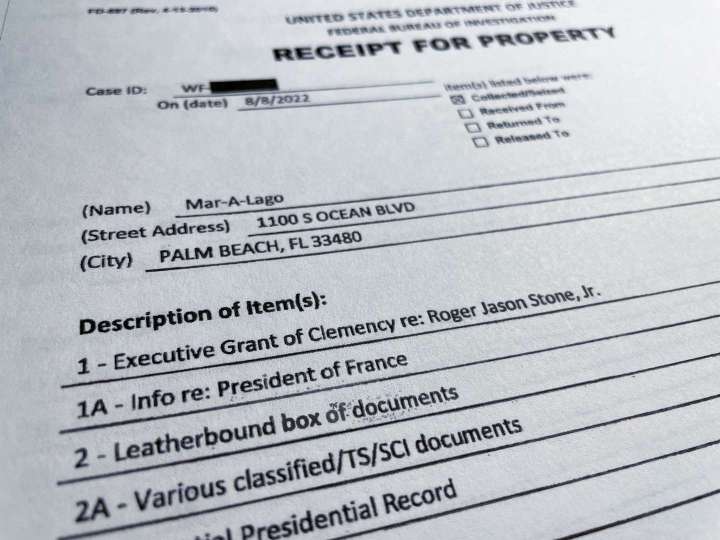The story so far, on Mar-a-Lago and the Multiverse of Madness:
The gaps in Trump’s claims of a ‘deep state’ attack

Second, Attorney General Merrick Garland has demonstrated a supreme indifference to politics. He did not originate the FBI search, but he approved it. He was, in essence, backing his own people in a case where the law was being obviously violated. This was not evidence of an anti-Trump political vendetta. It was Garland enforcing the law, even when it could be easily misconstrued as the result of an anti-Trump political vendetta. Thus Garland demonstrated one of the rarer political virtues: The attorney general was willing to look as though he was engaged in wrong in order to do what he believed was right.
Third, Trump has, once again, shown a deep misunderstanding of the high office he held. We recently learned that Trump, in a conversation with his chief of staff John F. Kelly, wondered why American generals could not be as loyal as “German generals in World War II.” (In Trump’s mind, evidently, there is no loyalty like Nazi loyalty.) As president, Trump falsely believed that every executive branch employee was his servant, required to obey his every selfish, capricious, vindictive whim. Now, as an ex-president, Trump seems to believe that every document produced by his administration is his personal property. It isn’t. As an ex-president, he presumes that he can declassify documents that he could declassify only before leaving office. He can’t.
The FBI search yielded, among other things, 11 sets of documents — one at the highest level of classification, “sensitive compartmented information”; four at the level of “top secret”; and three at the “confidential” level. Mishandling such documents is a crime — with legal consequences karmically strengthened by Trump as president.
This is enough to satisfy those who insist that “no one is above the law.” But most people will judge an FBI search of a former president’s home by the severity of the security breach that might have resulted. And this we still don’t know. Reporting on the contents of the documents has ranged from the absurd (information on Roger Stone’s corrupt pardon) to the apocalyptic (information on “nuclear weapons”).
Although I once had a pretty high security clearance, I am not sure what “nuclear” means in this context. There is no document of any kind that could enable, say, a 17-year-old Russian hacker to re-target U.S. nuclear missiles to hit U.S. soil, then click on a red button and enjoy the boom. Procedures for using nuclear weapons don’t even remotely work that way (thank God). Could such a document include information on the nuclear capabilities of enemies (Russia or Iran) or friends (Israel or India)? Or perhaps information about Trump pushing for the Russia-endorsed policy of the United States removing all its nuclear weapons from Europe?
For those hoping that these confiscated, classified documents will somehow destroy Trump’s chances at reelection, a warning. Many in the federal government have a strong tendency to overclassify information, which means that at least some of this trove could seem underwhelming when revealed. If it looks as though Trump was just retaining some documents for use in writing his memoir, few minds will change.
As it stands, the FBI action has confirmed public impressions, not transformed them. Remember that Trump secured the GOP presidential nomination in 2016 by dominating the news cycle. It barely mattered if it was good news about him or bad. He had a remarkable ability to shove everyone else off center stage while crooning “My Way.”
In this case, anyone who imagines and fears a “deep state” attack on Trump will take the FBI’s search at Mar-a-Lago as confirmation. Most GOP officeholders are finding it expedient to rally to Trump’s cause. The realm of charge and countercharge — of bold lies, absurd accusations and conspiracy theories — is Trump’s natural habitat. Other presidents have handled documents in this way, he inaccurately insists. The FBI has planted evidence, Trump claims, displaying a mind-boggling hatred of law enforcement and exposing FBI agents to physical risk.
Now imagine Trump is reelected. Remember his tacky, gold-leafed rule: Do unto others a hundred times what they do unto you. Consider an FBI stocked with Trump sycophants and directed at his enemies. It is a shard of the multiverse few would want to inhabit.






